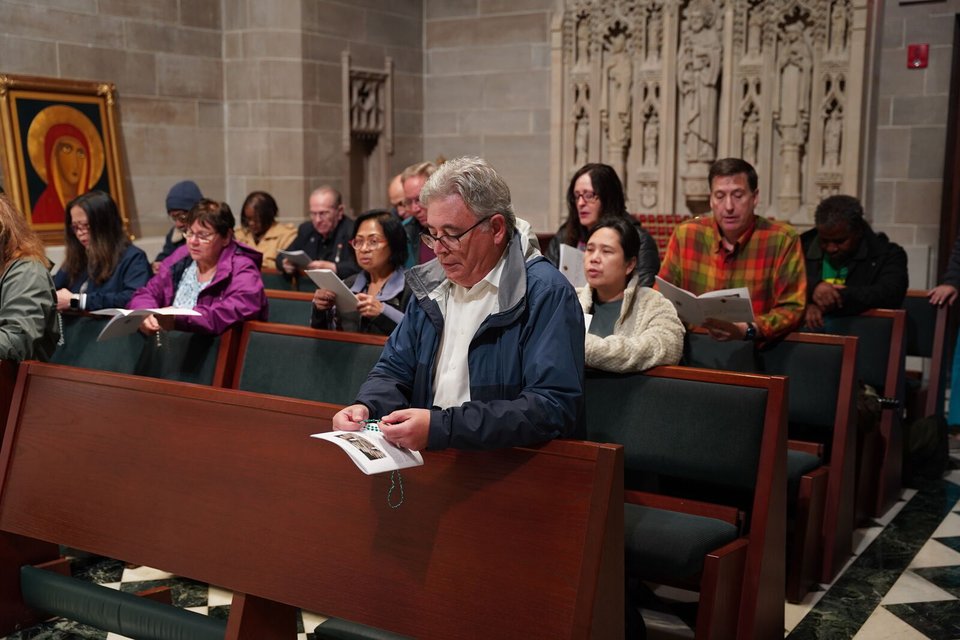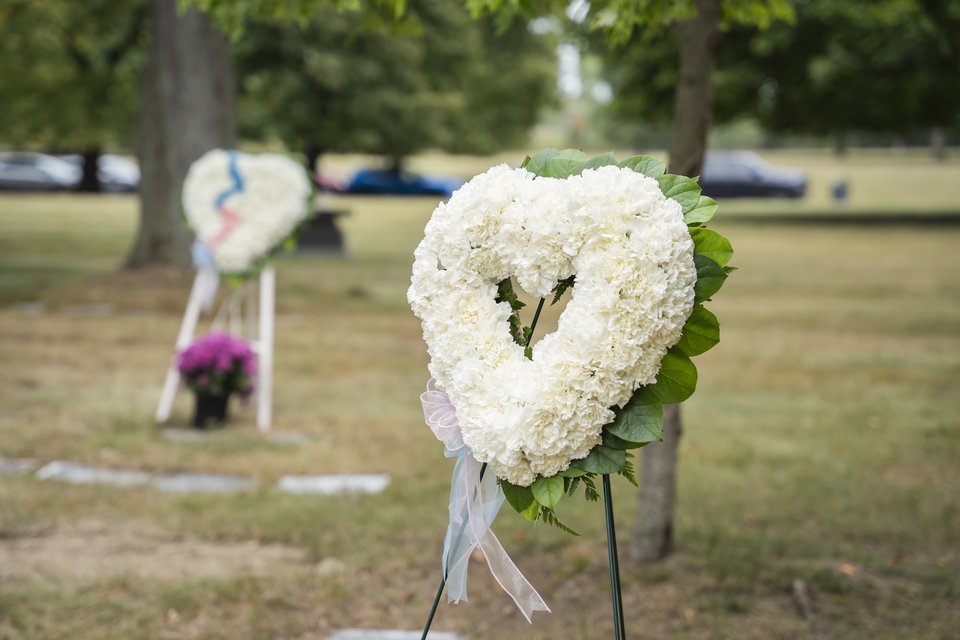Demonstrators meet in Lansing to pray, calling the Dec. 1 case before the Supreme Court the most important case since Roe v. Wade
LANSING — The U.S. Supreme Court heard opening arguments in Dobbs v. Jackson Women’s Health Organization on Dec. 1 in one of the most highly anticipated abortion-related cases to reach the court in five decades.
The case revolves around Mississippi’s ban on abortion after 15 weeks of pregnancy and Jackson Women’s Health Organization, Mississippi’s only abortion provider, in determining if the state’s laws are an undue burden on women seeking an abortion.
Pro-life advocates are hoping by the court taking the case, and deciding in favor of the state of Mississippi, it will call into question previous decisions, specifically Casey v. Planned Parenthood in 1992 and Roe v. Wade in 1973, on states' right to determine abortion laws.
The case has led dioceses across the country to call for a day of prayer while the case is being argued, given the monumental stakes of a potential decision.

“The Supreme Court must do the right thing and overturn Roe v. Wade,” said Barbara Listing, president of Right to Life of Michigan. “There is no good legal reason Mississippi can’t ban the brutal late-term abortions of children who have beating hearts and the capacity to feel pain. Thanks to advances like 3-D ultrasounds, today nobody can deny the identity of an unborn child in the womb: she is a human being, just like each of us.”
Pro-life demonstrators met across the state, including at the state capitol in Lansing, Nov. 30 to pray for the justices who will hear the case and the lives of millions who could be potentially saved by the decision.
“We’re here today, helping bring some awareness for overturning Roe v. Wade, with the Mississippi case that will be decided tomorrow,” Linda Lee Tarver told Detroit Catholic on Tuesday.
Tarver is a member of She Leads Michigan, an organization of Christian women who assemble to provide biblical answers to contemporary issues.

“We believe life begins before conception, because the Lord said, ‘I knew you before you were formed in your mother’s womb,'” Tarver added. “We are agreeing with the Lord, that life should happen.”
Tarver and a small group of demonstrators prayed and shared stories about how they got involved in the pro-life movement, reflecting on the impact the Supreme Court case could have on a nation where abortion has been legal nationwide since 1973.
“For three decades I’ve been pro-life,” Tarver said. “I had an abortion when I was very young, and I regretted that. I felt the need to lend my voice for others who are making that decision, that there is another way. The Lord has forgiveness, and He also has wisdom, and we should apply wisdom concerning this child, how we look at it, and listen to His word and His voice, over those who are advocating the murder of babies.”
A few members of the Michigan legislature joined the demonstrators. Michigan already has a law on the books banning abortion or assisting in the procurement of an abortion dating back to 1846 and later updated in 1931.

Michigan voters rejected a constitutional amendment in 1972 to legalize abortion in some cases in Michigan. After the 1973 Roe v. Wade case, the Michigan Supreme Court noted in People v. Bricker the referendum on abortion in Michigan, keeping the law on the books. Should Roe be overturned, Michigan's ban on the procedure could go into effect.
Looking at the constitutionality and legal reasoning of federal versus state abortion law, and the scope the state has in determining the viability of life is one of the main reasons
Pro-life advocates should be encouraged by the Dobbs v. Jackson Women’s Health Organization case, said Michigan State Rep. Steve Carra (R-Three Rivers), who joined the demonstrators to make brief remarks.
“The case we are going to see is bigger than Planned Parenthood v. Casey,” Rep. Carra said. “The problem with Planned Parenthood v. Casey is it went after informed consent laws. Justice (Anthony) Kennedy said you can’t just send us any pro-life law and ask us to take down Roe. Wade, you need to give us a compelling reason the decision is demonstrably erroneous.
“This case, with the 15-week abortion ban, shows it’s demonstrably erroneous that (the court) said it was not life in the womb,” Rep. Carra continued. “We now know, based on scientific and medical arguments, that it is life in the womb. And they are duty bound to reverse the unconstitutional violation to the right of the unborn in Roe v. Wade, which is destroying the lives of millions of unborn babies.”
Copy Permalink
Pro-life












